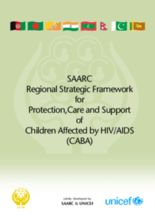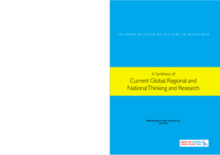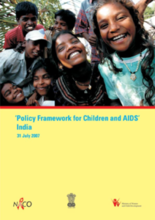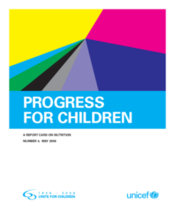childrens_living_arrangement
children_living_without_bio
Displaying 371 - 380 of 391
In this meta-analysis of 75 studies on more than 3,888 children in 19 different countries, the intellectual development of children living in children's homes (orphanages) was compared with that of children living with their (foster) families.
Document gives an overview of the HIV situation in India and details a study conducted on barriers to services for children whose parents are infected with HIV.
This newsletter is from a seminar on alternative care held in Bangalore, India, in November 2006. Designed to spread information on what organizations have accomplished in the year following the seminar, the newsletter includes specific information on progress and methods, as well as contact information for each organization listed.
A regional strategic framework for coordinating policies to protect, care and support children affected by HIV/AIDS in South Asia.
Presents the findings of a nationwide study into the extent and characteristics of child abuse and girl neglect in India. Includes: children in a family environment but not attending school; children in schools; children in institutional care; working children; and street children.
This report brings together current research – much of it unpublished – on the impact of HIV/AIDS on children in the South Asian region. It presents an overview of the findings of studies in Bangladesh, India, Nepal and Pakistan and recommendations for national action.
This Policy Framework seeks to broaden the focus to address the needs of the overwhelming majority of children in India affected by HIV/AIDS by covering a broader agenda, spanning both the medical and socioeconomic dimensions of the epidemic as it affects children.
This report captures the discussions and activities from a workshop held in Kathmandu, Nepal on 17-19 October 2005 on engaging men as caregivers. The report presents a background and rationale, the expectations and objectives of the workshop, and an overview of work being done to engage fathers both in the region as well as globally.
Detailed examination of debate over institutional and alternative care methods for children without parental care. Includes comprehensive framework for collective action.
Evaluates global improvements in nutrition as progress towards achieving the Millenium Development Goals (MDGs). Suggests that the MDGs are attainable only with re-prioritization of efforts to reduce child undernutrition.









